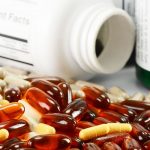
Research
Artificial Sweeteners and Cancer Risk? Insights from an Expert with Baptist Health Miami Cancer Institute
3 min. read
Baptist Health Miami Cancer Institute
The recent announcement by a World Health Organization (WHO) agency that the artificial sweetener aspartame — used in such low-calorie products as Diet Coke, Trident gum and sugar-free Jell-O — is "possibly carcinogenic to humans" has drawn pushback from medical experts and regulatory agencies, including the U.S. Food & Drug Administration (FDA) and the American Cancer Society.
Physicians and dietitians generally agree that everyone should monitor and reduce the amount of artificial sweeteners in the diet primarily because these sugar substitutes can cause more cravings for unhealthy sweet foods.
The announcement from the WHO's International Agency for Research on Cancer, or IARC, reclassifies aspartame, which has been widely used in soft drinks and other products since the 1980s and is sold as NutraSweet and Equal, among other brand names. The FDA, however, issued a lengthy response to the WHO report, concluding that it “disagrees with IARC’s conclusion that these studies support classifying aspartame as a possible carcinogen to humans.”

Ana Sandoval Leon, M.D., medical oncologist with Baptist Health Miami Cancer Institute.
The FDA states: “Aspartame is one of the most studied food additives in the human food supply. FDA scientists do not have safety concerns when aspartame is used under the approved conditions. The sweetener is approved in many countries.”
Cancer specialists agree, but caution to reduce or eliminate the consumption of artificial sweeteners overall. Previous and ongoing studies have suggested links between regular consumption of artificial sweeteners to weight gain, metabolic disorders, type-2 diabetes, alteration of gut bacteria and even a higher risk of stroke and dementia.
“There is limited evidence of the association of aspartame and cancer in humans,” explains Ana Sandoval Leon, M.D., medical oncologist with Baptist Health Miami Cancer Institute. “The available studies in humans showed a positive association of consumption of artificially sweetened beverages and cancer, but bias could not be ruled out as an explanation. There is also limited evidence in experimental animals and limited mechanistic evidence that aspartame increases the risk of cancer.”
Dr. Sandoval Leon adds that there is not enough data to stop the use of aspartame, but “we should try to limit its use. We should also limit the use of other substances that potentially increase the risk of cancer, such us red meat and alcohol.”
The American Cancer Society also pushed back against the findings of the WHO agency. The ASC states: “The results of epidemiologic studies (studies of groups of people) of possible links between aspartame and cancer (including blood-related cancers) have not been consistent for most cancers. Some studies have suggested a possible link, but others have not.”
Here are more insights on this topic from Dr. Sandoval Leon:
If you drink diet soda every once in a while (say, once a week or so), how will that affect your body?
Dr. Sandoval Leon: “The JECFA committee (joint FAO/WHO expert committee on food additives) met in Geneva in June/July of this year and concluded that there is not enough evidence that aspartame has adverse effects after ingestion. They concluded that is acceptable to have a daily intake of aspartame of 0-40mg/kg of body weight. I think the risk of having cancer from drinking soda every once in a while is very small.”
Is it your opinion that daily diet coke/soda consumption can raise cancer risk?
Dr. Sandoval Leon: “I wouldn’t recommend drinking soda every day because, as mentioned before, it might increase you risk of getting cancer and it has also been associated with other health issues.”
Can you share some healthier alternatives to diet soda?
Dr. Sandoval Leon: “Water it the best alternative to diet soda. If you are looking for some flavor, you can infuse it with lemon or other fruits. Other alternatives are sparkling water that can also be infused with fruits. To conclude: I recommend following the American Cancer Society guidelines for diet and exercise to reduce the risk of developing cancer. In summary, eat lots of fruits and vegetables and limit the use of alcohol, red meat, processed meats, sweetened beverages and highly processed foods and refined grain products. Exercise at least 3 hours of moderate activity every week.”
Healthcare that Cares
Related Stories
View All Articles
Sodas, Juices and Cancer Risk: The Growing Case Against Sugary Drinks
July 18, 2019
2 min. read

